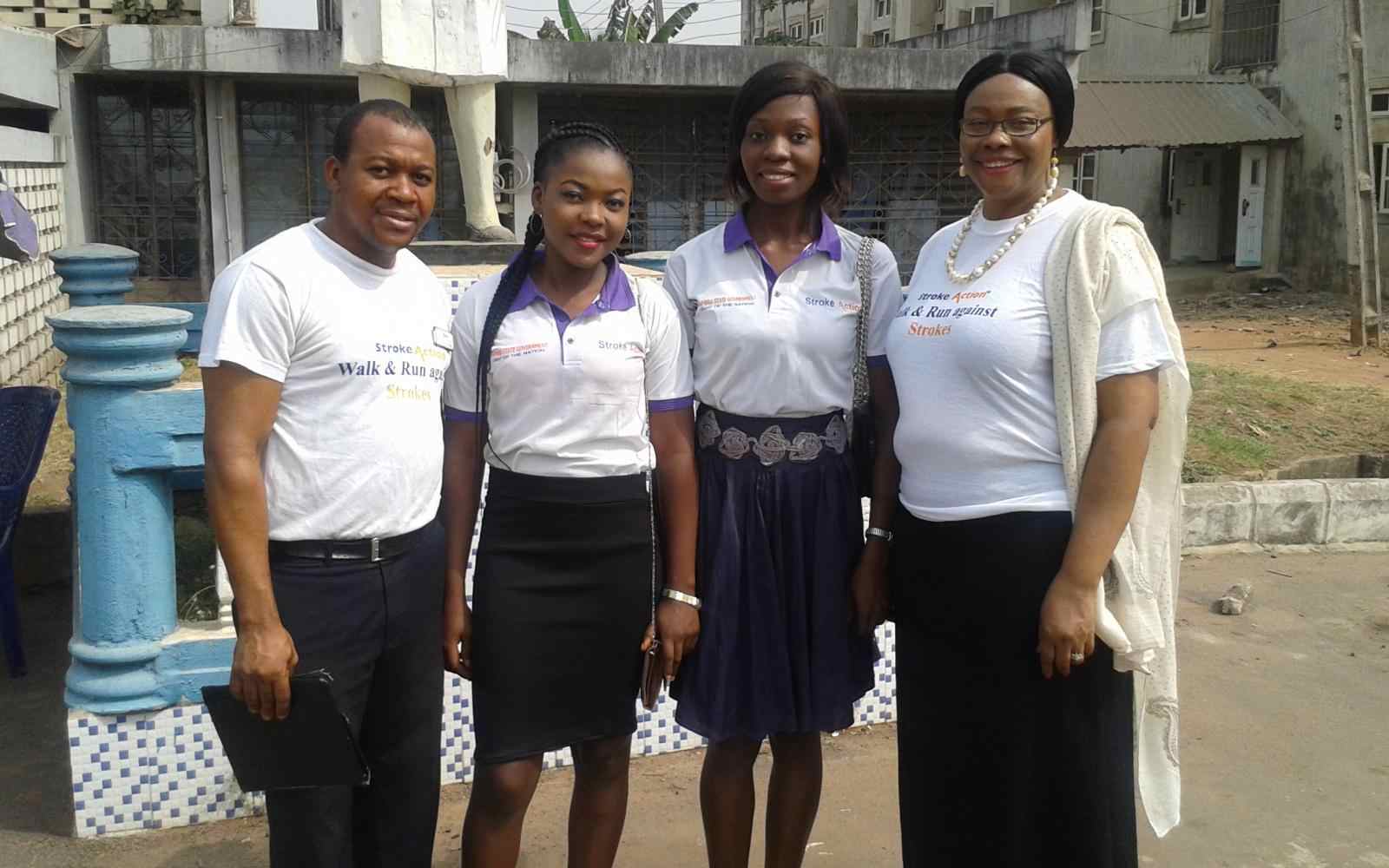How patients are becoming caregivers and co-creating Nigeria’s stroke care system

In Nigeria, up to 45 percent of stroke survivors die within three months and surviving a stroke can mean a long road of health complications, financial troubles, lacking employment opportunities, and therefore a loss of self-sufficiency.
– Rita Melifonwu, Accelerating Healthcare Access Fellow and Founder of Stroke Action Nigeria
Nigeria historically has not had a national stroke policy or strategy, so stroke care has always been at the mercy of local caregivers and hospitals who may not have the necessary knowledge or resources. The World Health Organization reports that 200,000 people have a stroke every year in Nigeria, although due to the lack of organized reporting in the country, this statistic is likely to be a gross underestimate.
After a long career in healthcare witnessing care discrepancies for survivors of strokes, Rita Melifonwu founded Stroke Action Nigeria, an organization to rehabilitate the physical, psychosocial, and vocational ability of those survivors while educating the public on stroke risk factors through media campaigns and community outreach.
Due in part to her 2018 involvement in a scaling program which is a collaboration between Ashoka and the Philips Foundation, Rita is piloting a franchise model where stroke survivors are trained to open a local Stroke Action Center and manage all aspects of their own business from community education to supporting rehabilitation, thereby becoming “Stroke Entrepreneurs”. 15 Stroke Entrepreneurs are already trained and on their way. The goal is to have 1,000 trained over the next ten years, running their own stroke centers across Nigeria and eventually across Africa. Stroke Action Nigeria is currently looking for access to finance to help these Stroke Entrepreneurs build and operate their own stroke centers.
A member of the pilot cohort of Stroke Entrepreneurs, Ms. Onyinye Iromba, says, “I found Stroke Action Nigeria sometime after I was discharged from hospital, and my experiences of rehabilitation and therapy have been wonderful. I was put on their functional rehabilitation and exercise training after the stroke program. This helped me to gain confidence in myself and start speaking and walking properly again. I was a manager in a private company before my stroke, but I was dismissed when I had a stroke. Stroke Action Nigeria trained me as a volunteer, so two days a week I did admin support for their prevention clinic and was a peer coach for exercise training helping other stroke survivors to get better.” Ms. Onyinye has since stepped up further to become a Stroke Entrepreneur.
Stroke Action Nigeria is creating systems change by mobilizing not only the human and educational resources but also the financial and legal resources necessary to make stroke care a reality on a national level by influencing government policy. As a result, since 2018, stroke survivors are now legally entitled to access the Basic Healthcare Provision Fund, enabling them to receive care, thanks to Rita’s strong government lobbying on the topic.
Hear more about Stroke Action Nigeria directly from Rita in this two-and-a-half-minute video: